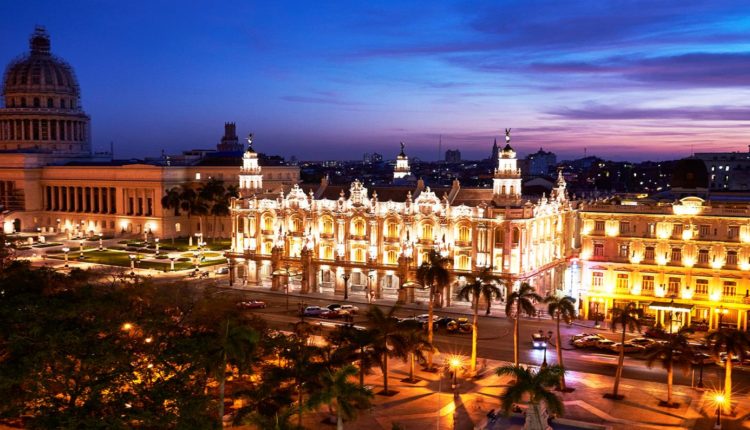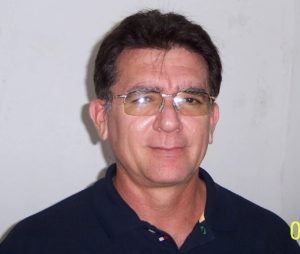
A bet gone wrong

HAVANA – “Evidently the Coronavirus affects the economy and is going to change the rules of the game for a time. In fact, to a large extent it is already changing them,” says Cuban economist and university professor Antonio Díaz. This is a fact that no one should ignore. And also an enormous responsibility, both individually — maintaining hygienic measures and the recommended social distancing — and for the country’s authorities who are in charge of managing our resources more efficiently.
“Tourism could near zero, and unfortunately it is the best thing that can happen. But it is a necessity for our survival,” explains Díaz, who compared a possible closure of Cuba’s borders — which would directly affect the economic sector where so much has been invested and resources spent for the coming years — with the attitude of the prime minister of the United Kingdom, Boris Johnson. Instead of taking measures against the virus, the British prime minister has advised the population that it is a process of natural selection from which the survivors will emerge stronger.
But if we are going to discuss problems in the tourism sector, most are fundamental distortions that have been previously analyzed. He states that “in the first place, dependence on a sector of the economy makes us very vulnerable to situations of this type. Something similar happened with medical services. Life has shown us that this other sector of services, in this case health, was also very vulnerable. Because we continue to make the economy depend on this policy, both internally and international.
“As an economist, I maintain that the internal market is always more important than the external one. We do not understand what we put into the constitution, whose planning goes with the market. We do not understand that dialectical unity, and that dialectic treads the keys of the dogmas that we have in mind.
“These are essential problems in Cuba, with or without coronavirus. Economic policies have their backs to the market, especially the internal market, including the labor force, which lives based on a salary. And imagine that, salary is an economic category of the market. The market is an instrument, and it should be regulated, but it must be used,” said Díaz.
On the other hand, as a negative, he adds, “the monopolistic conditions of most companies, and the number of restrictions that limit the independence of economic actors, including the private sector, but mostly, the largest and most important one, the state. We cannot continue with the strategy of betting only on Venezuela, or only on China, or only on tourism. You have to understand the market, and use it as the tool that it is.”
Díaz insists that the tourism sector in Cuba already had other problems. “The Ministry of Tourism has only been in charge of the state part of the sector,” he says. “The private ones have been present in the field for several decades. Now more attention is being paid to them. There was no investment in the city, they continued making ‘all-inclusive’ hotels for sun and beach destinations. That was outrageous. It was studied and documented by Alejandro Figueras, a professor who was an adviser to the minister. He [Figueras] explains the distortion very well. After Obama’s visit we again started thinking about the cities. That is when the inertia caught up to us, and we are building these super hotels for nobody… and that was not the coronavirus’ fault. Last year’s occupancy rate was 38 percent, which means 20,000 rooms, 50 or 60 empty hotels. We are lagging and living with our backs to the market, because the market was asking for this since before 2013,” he adds.
Díaz makes it clear that the decline in tourism is not all due to the virus. And it’s not just about the occupancy level either. You must “also [take into account] number of days stayed [by the visitors], and the money spent… these three indicators are the worst in the whole of the Caribbean, and on a sustained basis. That can also be compounded by the way they factor their statistics. Because in Cuba the statistical problems are serious.
“Especially because the private sector is tremendously important for tourism. The spillover from this area is greater than what the numbers are showing, I am sure. Tourism is a social phenomenon, it does not exist as an institution. Capturing that type of information is very complex. But still the decline is a fact.”
Just in the first quarter of 2020, Cuba has received 100,000 fewer tourists than the previous year at the same time, Díaz explains, and cites the 4.5 million projected for the year by the National Office of Statistics and Information (ONEI). “With the Coronavirus, I believe that at least 50 percent of that figure will not visit us. It all depends on how long the decision to close or not is postponed. But it will have to be done,” he said, adding, “I don’t know if we ourselves will do it, or if little by little they will isolate us.”
Hours after this conversation, the European airlines Evelop, Iberia, Air Europa, KLM, and Air France canceled their flights to Cuba.
In search of other economic strategies to face the looming situation, the Cuban economist mentions that a point in favor is the very fact that the Island has lived for years in crisis. And although not as consolation, he does add, though, that “in the end this makes us better prepared to face the problems ahead. In fact, there is a giant body created to manage the country’s reserves that was never eliminated.”
“The thing is to finally understand the Cuban economy and allow it to work,” he says, “with all the factors of the internal market competing and producing without strings attached. With the necessary supervision, of course, because not everybody can handle these tools. This also occurs through an essential reformulation or reconceptualization of the structure of cadres and leaders in the country. That is another topic in itself.”


